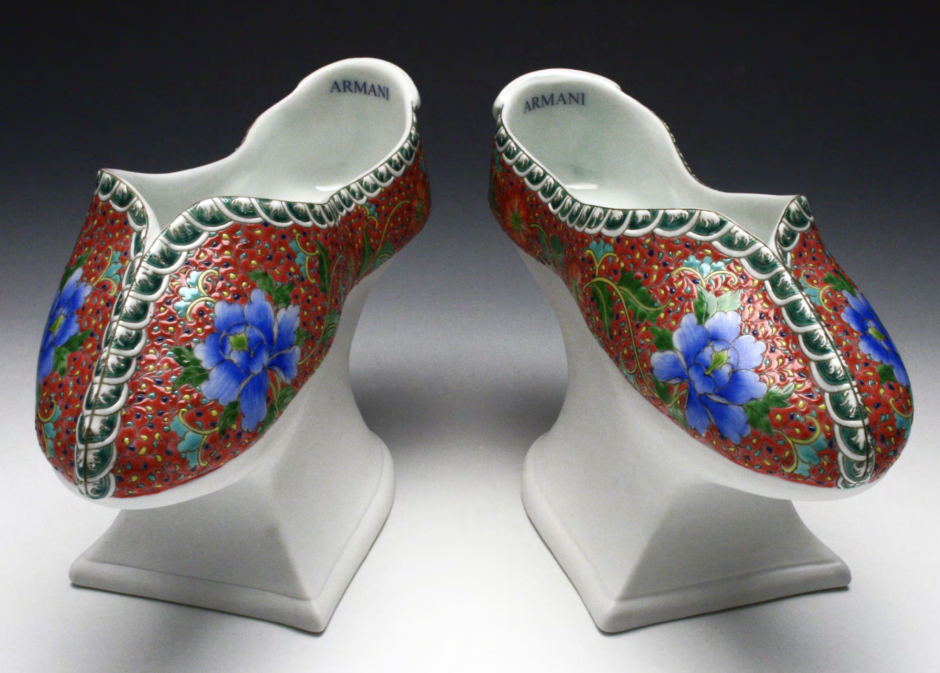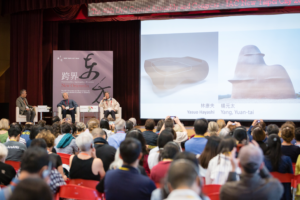Julie Bartholomew
 Pieces from Julie Bartholomew’s « Qing Armani » work (2009) |
|
|
« Ceramics and the Emergence of Hybrid Cultures » ABSTRACT For centuries, cultural exchange between distinct and distant nations has motivated a rich and diverse history of ceramics practice. The Silk Road trade routes in China were catalysts for cultural interchange between Asia and powerful nations of the West. In contemporary times, movement between disparate nations has radically accelerated cultural interchange. Accessibility to international travel, new communication technologies, social media and the Internet have reconfigured the dialogue between Asian and non-Asian nations. Not surprisingly, ceramics reflects the transmission of cultural exchange between diverse individuals and nations because it has always engaged with the social and cultural environment. The chameleon nature of ceramics, and its capacity to align itself with high art, low art, the personal, impersonal, consumerism and the unique, is its great strength as it evolves with the local and the global, the microscopic and macrocosmic worlds. |
A global culture is a reality in an increasingly fast shrinking world hastened by travel and expanding communication technologies. Globalization is increasingly fueled by a rampant world economy and dominant ideologies that often impact on local values and identities. My presentation examines the ceramics practice of selected individuals from different nations, within and without Asia. They debate the realities of cultural exchange in a world experiencing accelerated change. These artists reflect the dynamic relationship between multifaceted connections to the past and present, cultural autonomy and global consumerism. Most significantly, they re-evaluate identity, not as static or aligned to one nation but as constantly in flux while negotiating transcultural forces. |
| Click here to read Julie Bartholomew’s paper | |
éditorial N°1
Cette page web est axée sur le thème général de «Nouvelle Orientalia - Fonctionnalité, Spiritualité, Diversité».
(lire la suite...)


